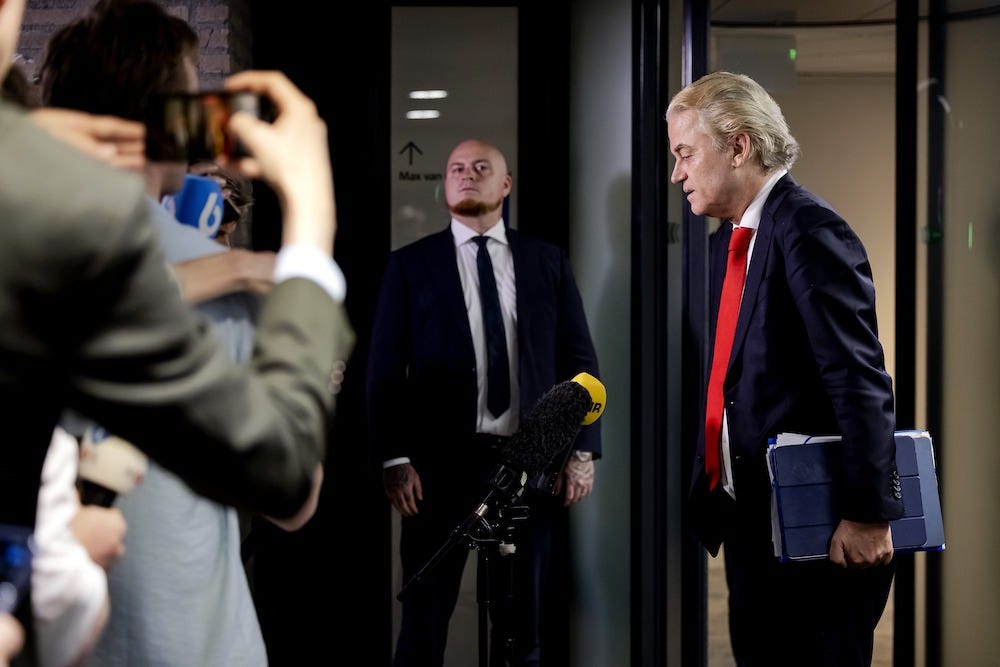The Only Thing Still Missing Is a Prime Minister
The new Dutch coalitions were finally announced.
Six months after the election, something is finally moving in the Dutch Parliament. Yesterday it was announced which parties are going to form the new coalition.
The future governing parties are the radical-right PVV, the right-liberal VVD of the current Prime Minister Mark Rutte, the new right-conservative NSC, and the right-populist Farmers' Party BBB. Together, they would have 88 members of parliament.
On Wednesday, talks between the four parties lasted much longer than expected, and the parties refused to explain why. According to NOS sources, a pension conflict sparked a clash between the VVD and the NSC.
The plan is to form a rather loose coalition with a cabinet comprising about half of non-party experts. To pave the way for a right-wing government, Wilders had put controversial demands such as a ban on mosques on hold and agreed to forego the position of prime minister. The faction leaders of the other three parties will also remain in parliament.
In Groningen, the party that was able to get the most votes last November was the electoral coalition of GL and PDVA (The Green Party and the Labor Party) at 30.4%. The PVV only achieved 13.2% of the votes in Groningen. Needless to say, some people are disappointed with the new coalition.
“I hope that the parties working together with the PVV fight against the PVV ́s points about climate change, important issues like that should not be ignored but I worry that they will be,”
says Media Studies student Lars B.
The PVV’s manifesto states that:
“The climate is always changing, for centuries. When conditions change we adapt. We do this through sensible water management, by raising dykes when necessary, and by making room for the river. But we stop the hysterical reduction of CO2, with which, as a small country, we wrongly think we can "save" the climate.”
This has worried climate activists since the election of the PVV in November. The large amount of international students in Groningen are also expressing their concerns.
“As an international student in the Netherlands, the news is not very cheery. Perhaps changes will be slow, but I hope at least protests will take place if discrimination is encouraged”
said international media student Velislava K.
The PVV had previously stated that they would want to limit the intake of international students in higher education. PVV, NSC, and VVD want to make the language of instruction for bachelor programs Dutch again, although the VVD argues that an exception should be made for technical universities.
Neither Wilders nor the leaders of the other three parties would say who could become the next political leader of the Netherlands.
Ronald Plasterk, the former interior minister in Mark Rutte's previous cabinet, was rumored to be Wilders' top choice for the next prime minister. Plasterk has been a member of the Dutch Labour Party (PvdA) for 46 years and was an early mediator in discussions between the four parties. He would have to cancel his membership and most likely join the PVV.
Whether Plasterk or someone else is chosen as the next prime minister, a lot of Dutch people are curious about who will lead their country as Prime Minister.




